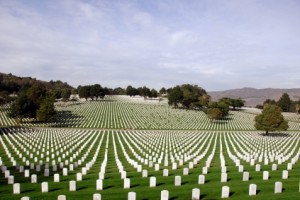 When teachers of Biblical wholeness speak of the importance of the doctrine, they usually make one of a few arguments. Certainly there are more, but these are the most common reasons given by them that the doctrine is important.
When teachers of Biblical wholeness speak of the importance of the doctrine, they usually make one of a few arguments. Certainly there are more, but these are the most common reasons given by them that the doctrine is important.
1) Opens us up for demonic deception
This is perhaps the most common objection is that if we do not hold to this doctrine that the nature of humanity is not a soul that lives in a shell, then demonic agencies can take on the personalities of dead loved ones and deceive us into believing a lie.
I do believe that demonic agencies live and manifest themselves in our world. In addition, I believe that these entities do seek to to deceive us. However, believing in Biblical wholeness does not remove the possibility that we will be deceived by demonic agencies. For example, demonic agencies could take on the body and personality of people who are not dead just not here now. Your mother who is in England. Now one would argue, that the demons could say “I have been gone and now I came back, and this is true, but certainly one could take on the body of Jesus (Which many predict) or Elijah (who according to the Biblical Record never died).
The key point is that believing Biblical wholeness does not totally keep one from being deceived by demonic agencies. One still needs that close connection to God to be able to discern God’s truth in a world of many competing truths.
2) Minimizes embodiment
Perhaps one of the most important reasons that some are coming to the idea of Biblical wholeness is that the other idea minimizes embodiment. In short, a person, in that idea, is not an embodied person, but merely taking residence in this body.
Such an idea has ramifications that minimize the importance of the body. This idea can tend to say that Our body is not important, what we eat is not important, how we tend to this body is not important for what is really important is the “spirit” over the “body.”
In addition, racists and sexists of previous generations used the idea that there was a “soul” that was more important than the Body and tried to say that women and other ethnic minorities either did not have this soul or their body was in charge of their soul thus they needed added guidance. However, all of this is illusionary, for we do not have a “soul” that can be removed from our bodies, we are souls.
3) Minimizes the Second Advent Hope
If one is going straight to heaven at death, why is there a need for a second advent? Certainly, as the argument goes, our pleasure is increased and our pain increased as a result of the second advent according, but even this lowers the importance of the second coming.
A side note to this idea is the common refrain that this earth is not our home, heaven is our home. The idea sometimes reduces to heaven being a place where “spirit” beings live in contrast to the earth which is where we are encumbered by bodies and physicality. However the idea of Biblical wholeness is that we do not look forward to becoming spirit beings floating around heaven but concrete embodied people living in the new Jerusalem.
4) Minimizes the Sacrifice of God
An interesting thought that the 1888 Message Study Committee posits is the idea that the natural immortality of the soul reduces Christ’s sacrifice. Christ died, in his humanity, the equivalent of the second death which is as Jack Sequiria states “Saying Goodbye to life forever.”
If Christ, in his humanity, assumed an immortal soul then the death, in his humanity was simply the hours of pain that he had to go through and not the anguish of dying as you and I die.
Conclusion
Certainly the State of the Dead is an important doctrine,and this is simply a rough outline of some of the reasons why that is the case. I would encourage you to continue looking at this site as we explore this and other vital topics.



